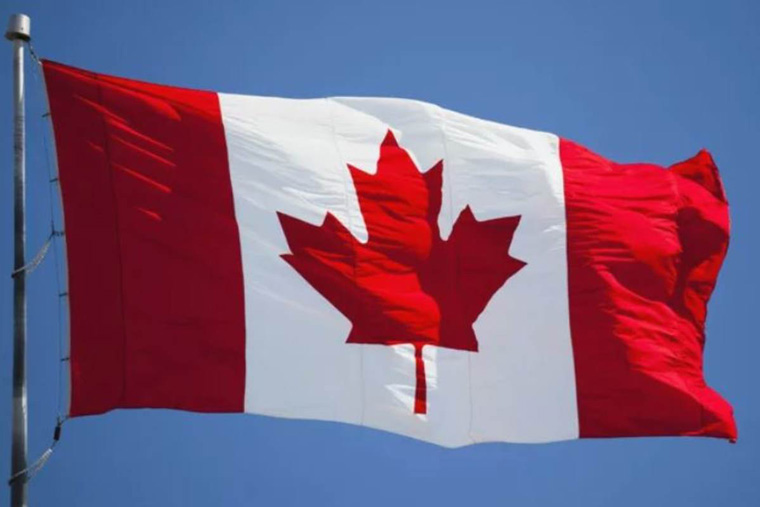By ROB GILLIES, Associated Press
TORONTO (AP) — Canada’s government on Monday announced it is imposing a 100% tariff on imports of Chinese-made electric vehicles that matches U.S. tariffs and follows similar plans announced by the European Commission.
The announcement came after encouragement by U.S. national security advisor Jake Sullivan during a meeting with Canadian Prime Minister Justin Trudeau and cabinet ministers on Sunday. Sullivan is making his first visit to Beijing on Tuesday.
Trudeau said Canada also will impose a 25% tariff on Chinese steel and aluminum.
“Actors like China have chosen to give themselves an unfair advantage in the global marketplace,” he said.
There was no immediate response from China.
Chinese officials are likely to raise concerns about American tariffs with Sullivan as Beijing continues to repair its economy after the COVID-19 pandemic. U.S. President Joe Biden in May slapped major new tariffs on Chinese electric vehicles, advanced batteries, solar cells, steel, aluminum, and medical equipment.
“The U.S. does believe that a united front, a coordinated approach on these issues benefits all of us,” Sullivan told reporters on Sunday.
Biden has said Chinese government subsidies for EVs and other consumer goods ensure that Chinese companies don’t have to turn a profit, giving them an unfair advantage in global trade.
Chinese firms can sell EVs for as little as $12,000. China’s solar cell plants and steel and aluminum mills have enough capacity to meet much of the world’s demand. Chinese officials argue their production keeps prices low and would aid a transition to the green economy.
“We’re doing it in alignment, in parallel, with other economies around the world that recognize that this is a challenge that we are all facing,” Trudeau said of the new tariffs. “Unless we all want to get to a race to the bottom, we have to stand up.”
Deputy Prime Minister Chrystia Freeland said Canada also will launch a 30-day consultation about possible tariffs on Chinese batteries, battery parts, semiconductors, critical minerals, metals, and solar panels.
“China has a intentional state-directed policy of overcapacity and oversupply designed to cripple our own industry,” Freeland said. “We simply will not allow that to happen to our EV sector, which has shown such promise.”
The only Chinese-made EVs currently imported into Canada are from Tesla, made at the company’s Shanghai factory.
Canada “had to go with the U.S. position, when you think about the economic integration that we have with the U.S. More than 75% of our exports go to the U.S.,” said a former Canadian ambassador to China, Guy Saint-Jacques. “This reflects the fear that the next president of the United States might be Donald Trump, and so they know we have to be pretty much aligned in all of this.”
Saint-Jacques said Canada can expect retaliation from China in other industries, adding that barley and pork are candidates because the Chinese can get it from other countries.
“China will want to send a message,” he said.
In response, China on Tuesday accused Canada of protectionism.
The Chinese Commerce Ministry said the tariffs would disrupt the stability of global industrial and supply chains, severely impact China-Canada economic and trade ties and damage the interests of enterprises in both countries.
“China is strongly dissatisfied and firmly opposes this,” it said in a statement.
“Canada claims it supports free trade and the multilateral trading system based on (World Trade Organization) rules, but it blatantly violated WTO rules and announced it will take unilateral tariff measures by blindly following individual countries. It is typical trade protectionism,” it added.
The ministry urged Canada to “immediately correct its wrong practices” and said that Beijing would take any necessary measures to defend the rights and interests of Chinese companies.
A Chinese Foreign Ministry spokesperson on Tuesday urged Canada to “not politicize economic and trade issues.”
“China’s burgeoning electric vehicle industry is the result of continuous technological innovation, a well-established industrial and supply chain and full market competition,” spokesperson Lin Jian said.
Trudeau said that Canada also would impose a 25% tariff on Chinese steel and aluminum.
“Actors like China have chosen to give themselves an unfair advantage in the global marketplace,” he said.
Deputy Prime Minister Chrystia Freeland said that Canada also will launch a 30-day consultation about possible tariffs on Chinese batteries, battery parts, semiconductors, critical minerals, metals and solar panels.
“China has an intentional state-directed policy of overcapacity and oversupply designed to cripple our own industry,” Freeland said. “We simply will not allow that to happen to our EV sector, which has shown such promise.”
___
Copyright 2024 The Associated Press. All rights reserved. This material may not be published, broadcast, rewritten or redistributed.
Tagged with EV





